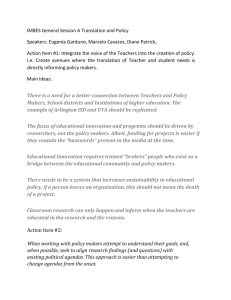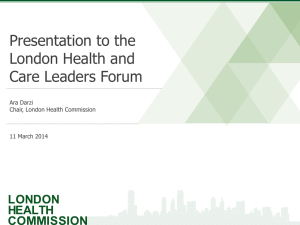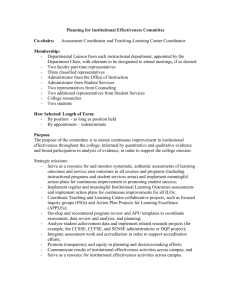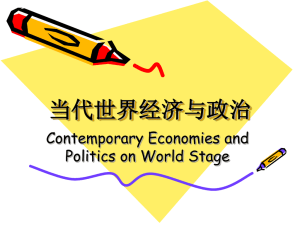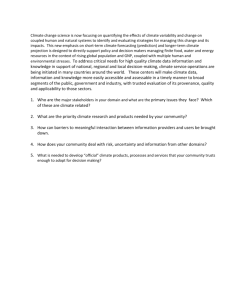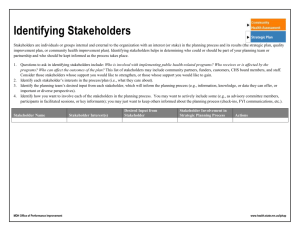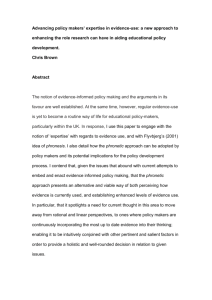Wellbeing of families in future Europe – challenges for research and
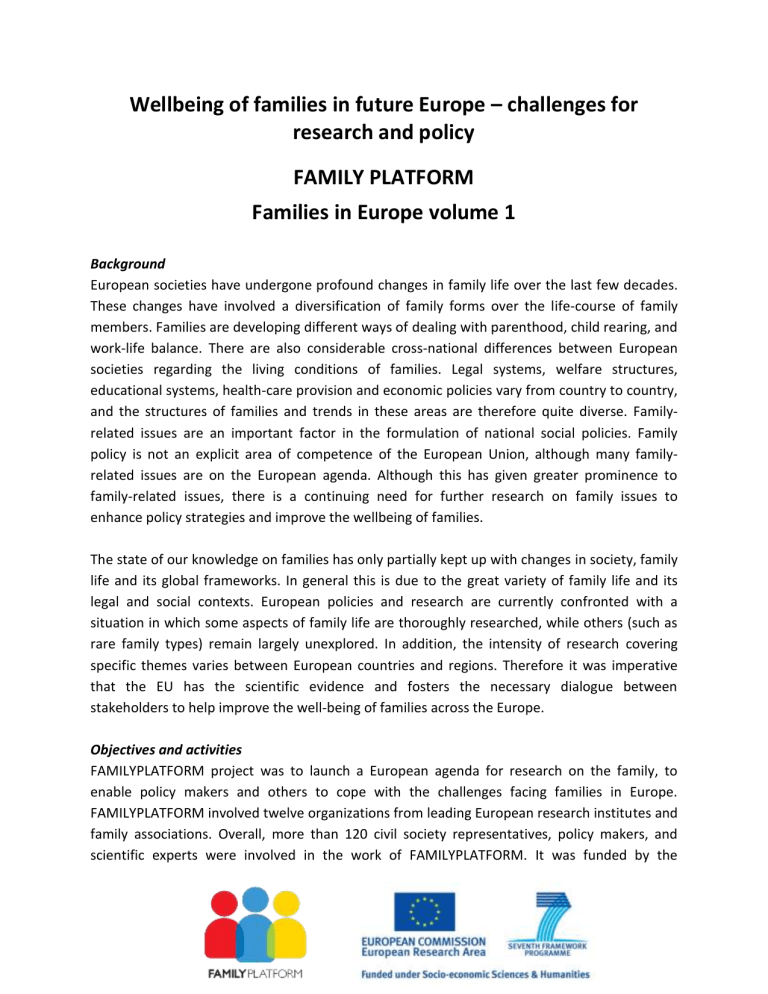
Wellbeing of families in future Europe – challenges for research and policy
FAMILY PLATFORM
Families in Europe volume 1
Background
European societies have undergone profound changes in family life over the last few decades.
These changes have involved a diversification of family forms over the life-course of family members. Families are developing different ways of dealing with parenthood, child rearing, and work-life balance. There are also considerable cross-national differences between European societies regarding the living conditions of families. Legal systems, welfare structures, educational systems, health-care provision and economic policies vary from country to country, and the structures of families and trends in these areas are therefore quite diverse. Familyrelated issues are an important factor in the formulation of national social policies. Family policy is not an explicit area of competence of the European Union, although many familyrelated issues are on the European agenda. Although this has given greater prominence to family-related issues, there is a continuing need for further research on family issues to enhance policy strategies and improve the wellbeing of families.
The state of our knowledge on families has only partially kept up with changes in society, family life and its global frameworks. In general this is due to the great variety of family life and its legal and social contexts. European policies and research are currently confronted with a situation in which some aspects of family life are thoroughly researched, while others (such as rare family types) remain largely unexplored. In addition, the intensity of research covering specific themes varies between European countries and regions. Therefore it was imperative that the EU has the scientific evidence and fosters the necessary dialogue between stakeholders to help improve the well-being of families across the Europe.
Objectives and activities
FAMILYPLATFORM project was to launch a European agenda for research on the family, to enable policy makers and others to cope with the challenges facing families in Europe.
FAMILYPLATFORM involved twelve organizations from leading European research institutes and family associations. Overall, more than 120 civil society representatives, policy makers, and scientific experts were involved in the work of FAMILYPLATFORM. It was funded by the
European Union’s 7th Framework Programme (Socio-economic Sciences and Humanities 2009) for 18 months (October 2009 - March 2011).
The objectives of FAMILYPLATFORM were to review existing research, identify research gaps and explore different scenarios of the future family life. The first mission of FAMILYPLATFORM was to establish an empirical foundation for further discussion and decisions, by working out the current state of family research and bringing recent and relevant research findings together.
Family Research Centre coordinated and was responsible for this first stage of the FP project.
The research review provided an overview over studies on changing family structures, developmental processes in the families and family policies in the EU-Member states. It was accomplished jointly by 9 of the partners. The following existential fields were taken into account when outlining the current state of family research, identifying significant trends and differences between countries, discovering research gaps, and analyzing methodological problems: 1. Family structures and family forms in the European Union; 2. Family developmental processes; 3. State family policies; 4. Family living environments; 5. Family management; 6. Social care and social services; 7. Social inequality and diversity of families and
8. Media, communication and information technologies. Results of the review were published in a joint summarizing report provided by the lead partner in cooperation with other participants. This report functioned as a basis for the following stages of the project. The joint report was published on the internet platform of the project. An overview of policies and social systems was also compiled, to help give shape to the contextual framework of family life. As family is related to nearly every area of society, FAMILYPLATFORM had to define specific areas of major concern.
The main purpose of FAMILYPLATFORM as a co-ordination and support action for the European
Commission was to build up a social platform involving a wide range of stakeholder representatives, including policy makers and family and welfare organizations, grass root initiatives and researchers. The idea was to match different stakeholder groups and their perspectives, to identify vital societal challenges regarding the future wellbeing of families, and to derive key policy questions from interactions between stakeholders. Thus, one of the special characteristics of FAMILYPLATFORM, which made it a social platform rather than a ‘simple’ research project, was involvement of a wide range of stakeholder representatives. For the critical review on the state of the art it was essential to include the views of representatives of family associations as well as policy makers and social partners. Participants in the critical review process worked out key policy questions and appropriate research perspectives. By critically reviewing the current state of research from different perspectives, future challenges
for family research and important research gaps were highlighted, and key policy questions for future Europe identified.
Different expert groups worked on the Existential Field reports, summarizing the state of the art of European research in each field. Each report provides an overview of the focal points of research over the last few decades, highlights trends (in family life, as well as family policies) and points out gaps in existing research. To encourage critical comments and statements from a wide range of experts and stakeholders, two discussion forums were established. First, a conference took place in Lisbon in the spring of 2010. This conference was not only an opportunity for participants to hear statements on the state of the art reports, but also saw eight focused discussion groups and eight workshops take place. The conference in Lisbon was thus a milestone in the work of FAMILYPLATFORM2. In addition, an internet platform opened up further possibilities for discussion and involvement of stakeholders to ask questions, get in contact with researchers, and most importantly to add critical statements or new ideas online.
More information:
FAMILYPLATFORM website: http://www.familyplatform.eu
or https://eldorado.tu-dortmund.de/handle/2003/27684
